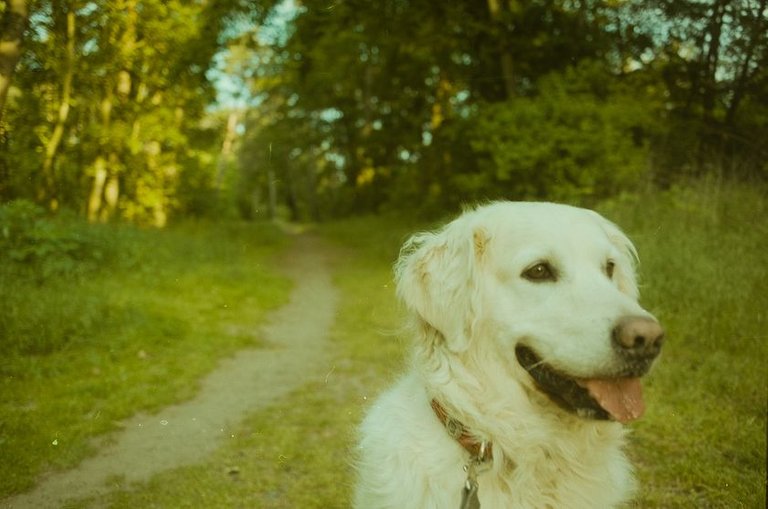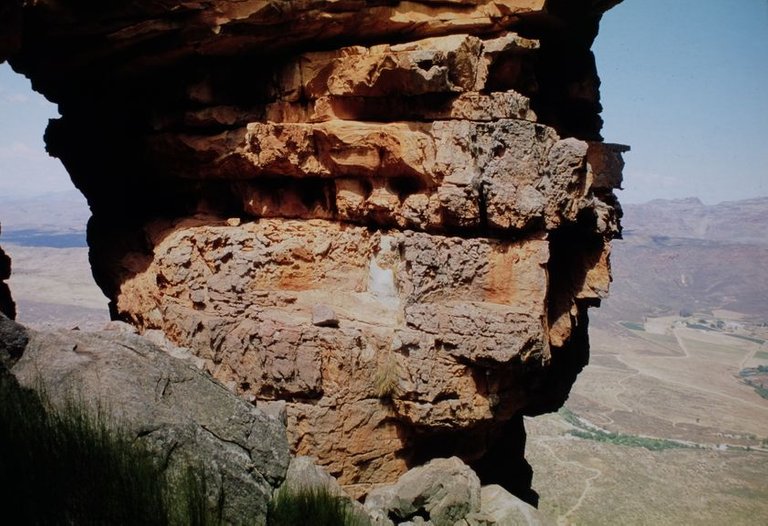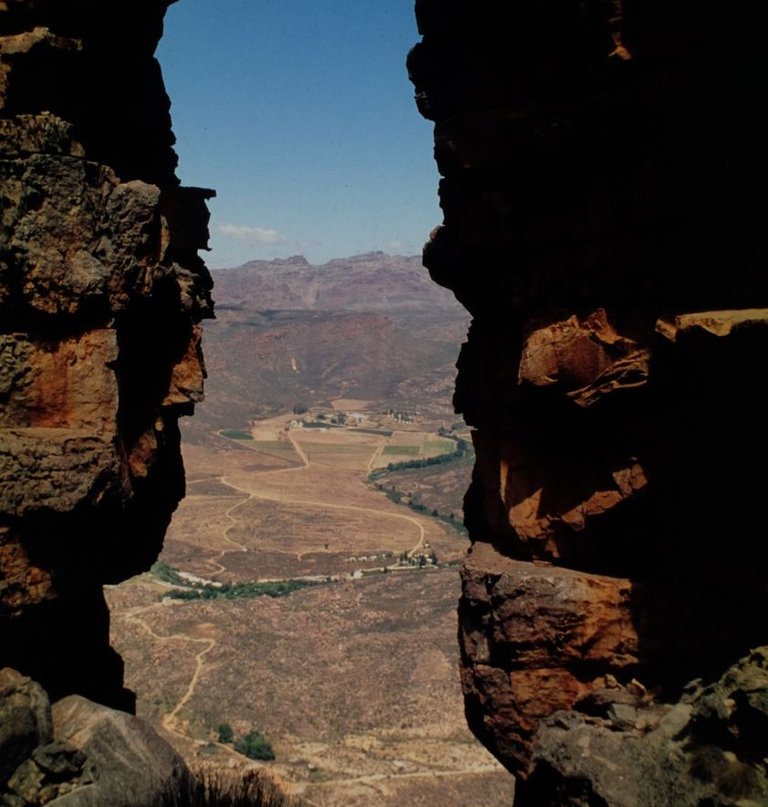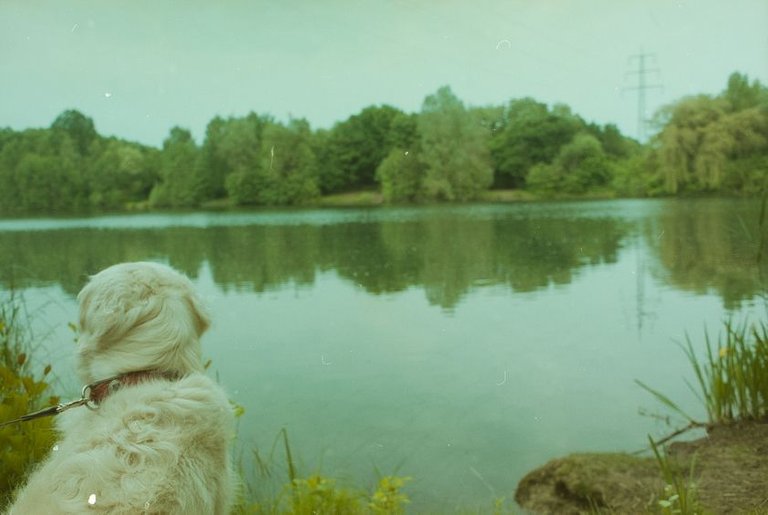
Why do I shoot film?
This is probably the question I hear most and at first glance, it seems like a pretty daft idea to shoot film: It's inconvenient, seemingly complicated and every picture costs you money, time and effort.
The simple answer to that is because it's magical and best understood by others when I compare it to the vinyl revival.
Back in 2008, my neighbours decided to throw out their old hi-fi system and because I liked the look of it I picked it up. Since it had a built in record player I decided to go out and buy some records and so my record collection began. At the time people would look at this massive thing taking up way too much space in my room and at best would appreciate it as some kind of oversized decorative object. But as time went on more and more of my friends started to appreciate records for their unique sound quality and started their own record collections. Nowadays it's pretty much impossible for me to visit anyone I know without seeing a record player and it's accompanying stack of records somewhere in the living room. As time has passed people have overcome the hype of a newer, more convenient technology and returned to appreciating an older technology for the qualities that are intrinsic to that medium. The way the needle of a record player glides through the grooves in the vinyl, producing a warm and rich sound, that is captivating and seems to satisfy something very basic within us.
Film photography shares many basic aspects with vinyl
You can physically hold it!
This is very important, as it allows you to experience both the process and the result with more than just one of your senses. The smell of celluloid when loading up a roll of film or the feeling of flicking through a collection of records allow us to interact with the chosen medium on a more personal level.It's imperfect!
The cracks and pops you hear as the needle traces a groove makes the experience organic and each run unique. With film, you have specks of dust and scratches on the negatives and the organic nature of the grain of the film, that makes it impossible for two photographs to be exactly alike.You have to engage with it!
As I'm writing this I have to get up and physically change the record. There is no autoplay, shuffle or loop. Film photography is exactly the same. Sure I can automate a lot of the process, but when I hit that little number 36 I have to wind back the film and load a new one into the camera.
These intrinsic qualities cannot properly be simulated within the digital realm and have led to the recent vinyl boom, along with film photography making an astounding recovery from a technology that was essentially declared dead, to Polaroid becoming mainstream again (I'm looking at you Fuji Instax).

I photographed this for fun at a party and when I received the negatives It turned out to be quite the gem. I think it looks like something straight out of the 50's
Practical benefits
Now apart from the sentimental benefits that captivate aficionados such as myself, there are actually some very practical benefits to shooting film:
The initial equipment is far cheaper than digital
Sure, you do have to pay for the film, but you can buy a lot of film from the difference in price. Cameras essentially last forever and there won't be any 4K-equivalent around the corner requiring you to upgrade. Cameras from before the 90's were also made of sturdier stuff. They come from an era where people didn't buy a newer product every year and where they expected things to last.You don't necessarily require electricity
This does depend on your camera, but most cameras have some way of taking a basic picture when there no power.It makes you slow down and think
Since each picture costs money you will naturally become more conservative with your pictures and take your time when choosing a subject and the correct settings. This has two effects: More time spent in behind the camera rather than a screen sorting through duplicates and improving your skills dramatically.The final images are truly final
They don't get loaded into digital editing software, where you can correct your mistakes. Mistakes made are permanent and remind you of what pitfalls to avoid next time.Cameras can be an investment
Certain cameras have appreciated quite dramatically in the past years and it's unlikely you will receive significantly less than you originally paid for your gear.It teaches you patience
There is no instant gratification and you will have to wait a few days to receive your results. This is my personal struggle, as I'm actually pretty impatient and get very excited when my pictures are ready.
The image quality is also astoundingly good, particularly when you start to move up into medium format and gain the benefits a larger negative has to offer. I generally equate 35mm film to about 12-16 MP and medium format to an effective 40-80 MP, however, this does vary quite significantly depending on the film you use.
If you want to read more about the precise technical differences there's an excellent wiki on the subject here.

I believe this was taken in the Cederberg mountains in South Africa. I pulled this from a roll of film my uncle took during a holiday in South Africa. Most of my equipment used to belong to him, as I inherited it when he died and this particular roll of film turned up at the bottom of a box paraphernalia.
Apart from all of the technicalities, it's also pretty damn cool to be a film photographer. It always catches people off guard and is an excellent gateway into a conversation. Many older folks still remember this stuff from when they were my age and usually have some fascinating stories or practical tips to share. If you happen to meet somebody who uses film themselves, then you might as well pull up a chair and get ready for a very long conversation. Particularly this reason is why I love smaller camera stores. Many of the people who work there actually learned the art the old way: In a dark room mixing chemicals, operating enlargers and watching photosensitive paper slowly turn into a proper picture. When I go there to pick up or drop off a bunch of rolls, they are usually more than happy to have a quick chat.
And finally, I'd like to send you off with a two more examples. To digitalize my pictures I photograph the negatives through a complicated array of auto extension bellows, lenses and teleconverters, hooked up to my Fujifilm XT-10 with a Contax/Yashica to Fuji X-Series adapter. Whilst this isn't the most efficient setup I only had to buy an adapter to get it working since I already had all the other equipment.
The images I've posted here are a few I did a while back as I haven't gotten around to getting my full setup organized in my new flat yet.

Another image from my uncles holiday reel. Some day I would love to take a holiday there myself and see these spectacular views with my own eyes

Joe again. He looks like he's contemplating something profound, when in reality he was watching a group of ducks and about 2 seconds from now will try and bolt after them.
I would like to thank you for reading my post and as would greatly appreciate your feedback.
Are posts like this interesting and useful or merely boring and painful to read? Let me know in the comments.
good post
This is high quality work here man. I never really thought about the real differences just because digital is so convenient. Love the comparison the vinyl, and really love the photos. They really do have a 50's quality to them, the photo of the cliffs from your uncles holiday reel reminds me of an old climbing magazine cover.
BTW I am a curator for the OCD project and would like to nominate your post.
This gem of a post was discovered by the OCD Team!
Reply to this comment if you accept, and are willing to let us share your gem of a post! By accepting this, you have a chance to receive extra rewards and one of your photos in this article may be used in our compilation post!
Gems! We strive for transparency.You can follow @ocd – learn more about the project and see other
Let me know if you have any questions on the project or nomination. Hope to hear from you soon!
It's nice to see my work appreciated. Of course, you can use any of my material to promote it via your compilations and appreciate every bit of help I can get. I did a bit of reading on your project and think it's very admirable that you go to the effort of finding people like me in the depths steemit.Hi @mk40,
I set high standards when it comes to my posts and a lot of time and effort go into them before I am willing to send them off.
On the subject itself: Of course digital is terribly convenient, but there are benefits to going analogue. I personally like to use digital in daily life and film photography for art and special moments. There are many things one can do in film photography that cannot be done properly with a digital camera and it all boils down to how the chemistry inside a roll of film works. But that's a subject for another post.
Have a nice day and thank you for noticing me.
Great! You will be my nomination for tomorrow's post!
I'm excited to see more of your post, very interesting!
Thank you very much. I appreciate your positive feedback. It's good to know my content is appreciated.
Now you've got me all excited for tomorrow's post :)
Yeah, I am hoping the other curators will be excited to see your work too!